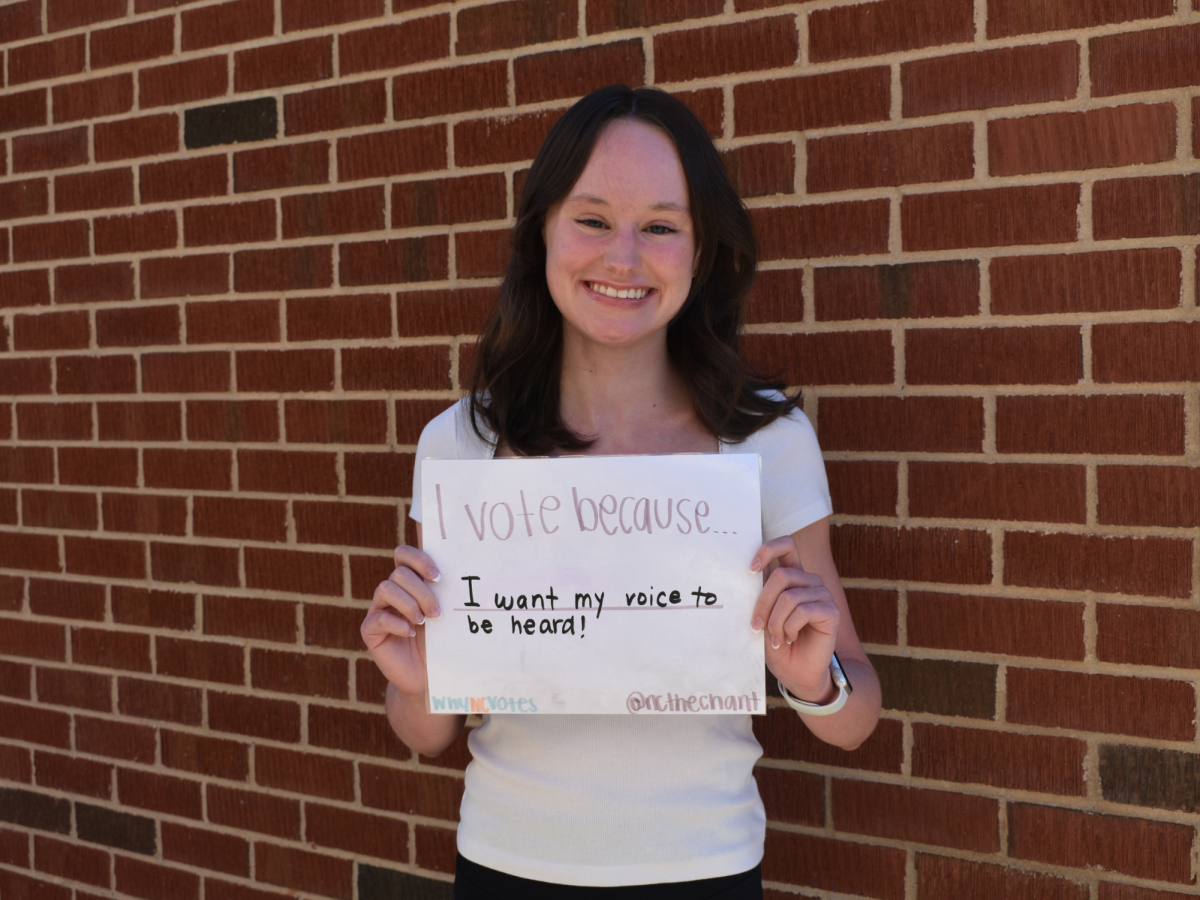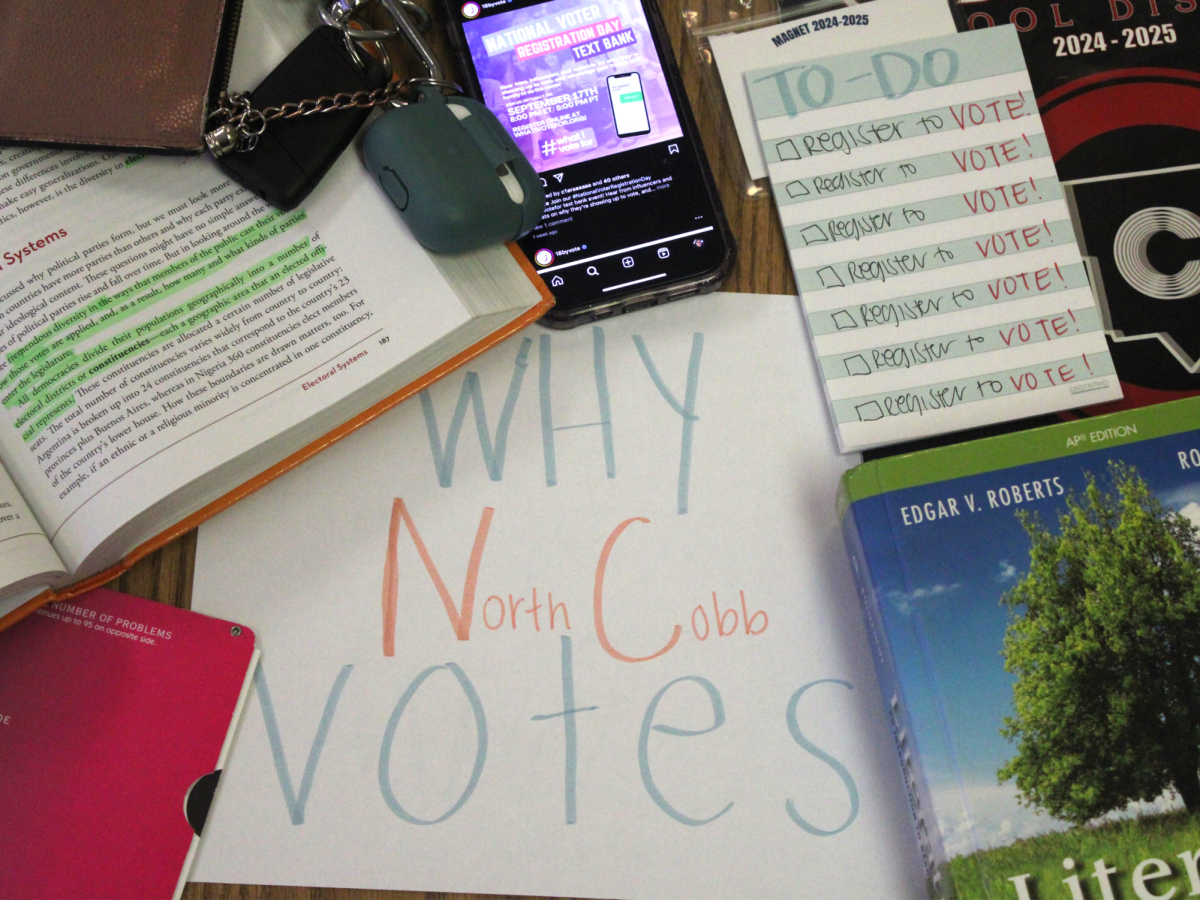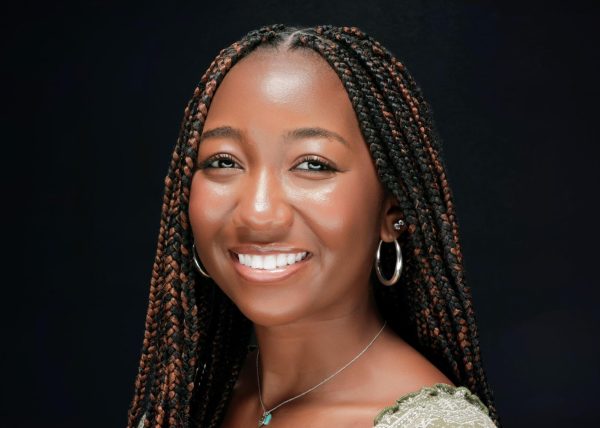Well. Don’t we have a lot to talk about?
My original plan for my final letter in this column was to write on Election Eve, cuddled up under my fuzzy blanket, drinking my Dr. Pepper, and reflecting upon the following day with red, white, and blue hope. Then I fell asleep doing homework, so of course, that did not happen.
I then attempted to craft my letter on Election Day (a grave mistake). Turns out, the time I wanted to write my address was right around when the first slew of results came in, so for obvious reasons, I was occupied. I crashed at around 10 p.m., woke up close to 5 a.m., and spent the first hour and a half of my morning sincerely overwhelmed with emotions. I honestly may have had better luck attempting to write during an AP exam. Due to the nature of my column, it would feel wrong to share my personal views on the election, its results, or how I feel after the fact. The predominant aspect of “Why NC votes” was its absence of partisanship — I wanted the people I interviewed to feel open enough to talk about why they cast a ballot, and not feel restricted by which bubble they may fill. In the increasingly pick-and-choose-y nature of our political landscape, I was nervous that the absence of bias would scare people away; I was concerned that people would trust me less due to the non-necessity of picking a side. To much surprise, however, I saw firsthand how candidly — and in some cases, joyously — that my interviewees were able to express their adoration for the voting process without the pressure of establishing their side.
With every interview, whether in-person or online, I uncovered how intimately voting can appear for many Americans. The pride in this civic duty that was omitted from the people I spoke to showed me how much the act of voting means to my community, and it gave me the motivation to schedule more interviews and reach out even further to my audience.
In times like these, people tend to move away from appreciating how sacred casting a ballot is. In this Constitutionally-ensured right, Americans are allowed to make their voices heard from local polling places in their county. How powerful is that? That one little piece of paper, or tap of a tablet, can move political mountains potentially in all three spheres of government? What a privilege. The act of voting, at its core, is void of perspectives, void of opinions, void of societal division intended to keep people apart. When you undress the act of voting, it truly is one of the most human things we have the opportunity to do: making a decision that can best fulfill your hopes, dreams, and goals for the future.
I, uniquely, am a Black female journalist who attends an International Studies magnet school. I am able to take courses on the rich, diverse history of not just the U.S., but various other nations around the world. I have friends who come from various parts of my county, and they have so kindly invited me to learn about their lives and cultures intimately. I can pursue my passion of writing freely, and share my stories with my close friends and community. All of these things that bring me joy are privileges of living where I live, and that is not something I take lightly. One of my favorite teachers — Ms. Alexandra Yeganegi — articulates that feeling better than I ever could, in a quote from an unpublished edition of my column:
“I think my heritage really impacts this. I am half Iranian, all of my family on one side lives in Iran, where there is no democracy and people do not have the right to vote. Occasionally they hold elections and act like it matters, but ultimately it’s just a theocratic, authoritarian country. So living in a country that does provide that right, is a privilege, and I don’t think everybody always thinks about how much of a privilege it actually is. But when you have a family who would love nothing more than to be able to vote and have a voice, it really drives me [to realize] how important it is to [vote] because we have the right, and not everybody does,” Yeganegi said.
After a little under two months of writing this column, I, even in the face of our current political climate, still have hope for the future of democracy and civic engagement. The power of the people still prevails; through grassroots organizing and collective action, change can occur, and really impact lives. For young people everywhere, we must use every educational tool we can to avoid rewriting history that doesn’t propel us back but keeps us going forward.
It has been a privilege to share “Why NC votes,” with you all. Thank you for giving my words a place to exist in our literary landscape. I hope that when I am finally able to vote, my time writing this column can encourage me and the people in my life.
Til next,

Ciara Whimbush



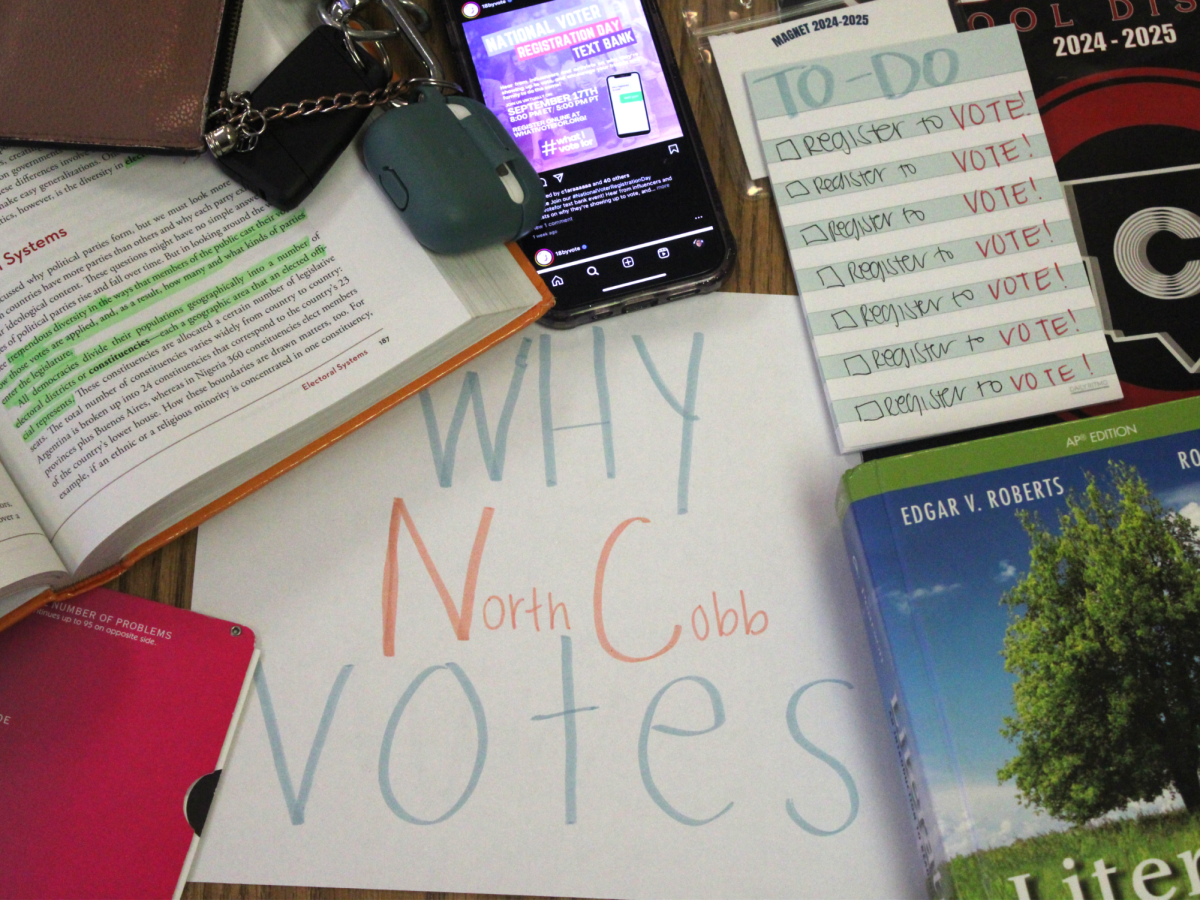
![During an election season, several Americans recall the extensive history — and conflict — with how voting has operated. The vast and often frustrating methods of voting used in decades past can allow modern citizens to appreciate the current methods in place, while also remembering the fond memories that occurred on the civic struggle bus. For Advanced Placement (AP) Macroeconomics and honors government and economics teacher Dr. Pamela Roach, her knowledge and lived experiences of different voting eras allow her to cherish her civic duty, and teach her students to do the same. Although it may not be the most efficacious, I think voting is one act of political participation. You [can] write and email your elected representative, whether it's at the local state or national level. [That] has a place in democracy because how else will those elected officials know what we, the people, want? ‘We the people’ is a powerful phrase, and no one takes the time to actually go and let their voice be heard by these individuals. So yeah, your voice matters,” Roach said.](https://nchschant.com/wp-content/uploads/2024/11/roach-photo-1-1200x900.png)
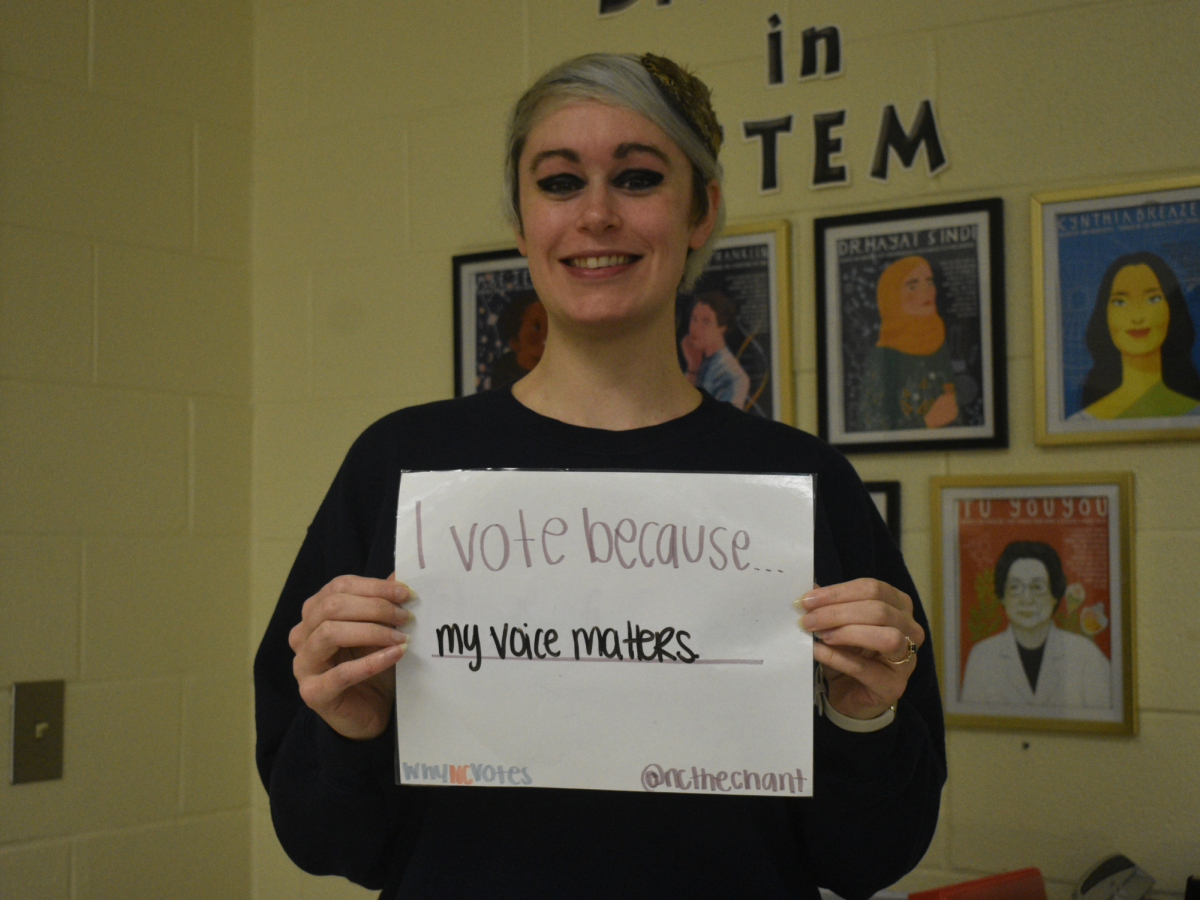
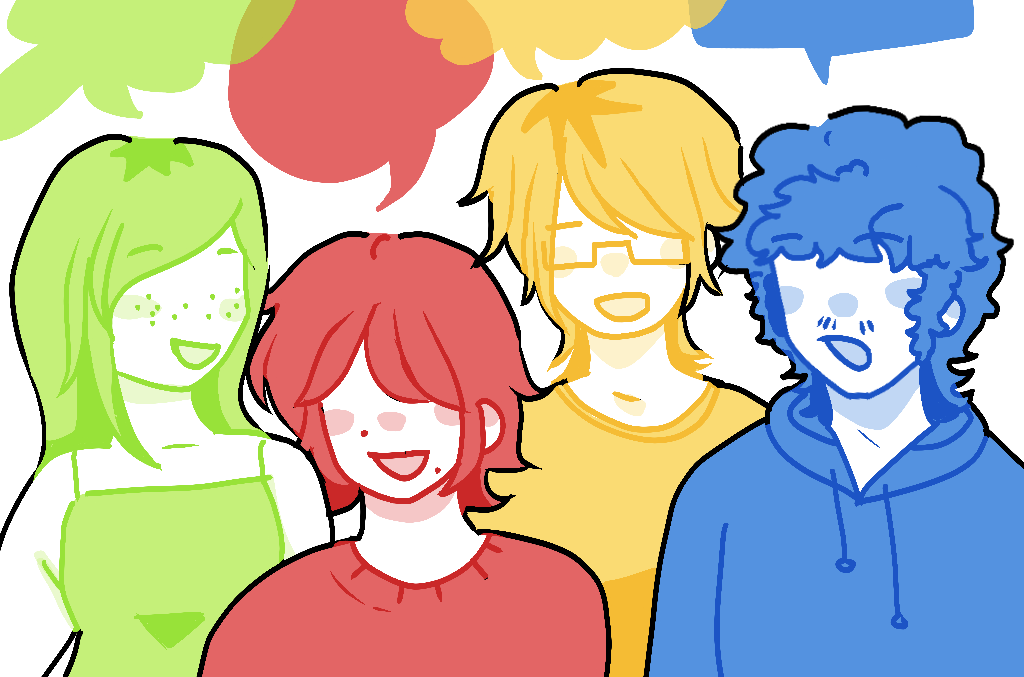
![For several government and politics educators around the U.S., an election season represents a key time to educate their students through tangible examples. In the case of Advanced Placement (AP) Comparative Government teacher Carolyn Galloway, this opportunity not only excites her but fervently aligns with her zeal for democratic processes. Through her personal and professional experiences with voting and government, Galloway encourages her students — both those who can vote and those who can not — to enter into elections informed about any topics on the ballot. “[Voting] impacts your government, especially on the local level, because not a lot of people vote on the local level. Who you vote for, how you vote, and whether or not you understand what you are voting for impact everything from who your tax commissioner is, to who your president is, to what ballot measures pass. All of those impact the way the government works for you,” Galloway said.](https://nchschant.com/wp-content/uploads/2024/10/galloway-photo-2-1200x900.png)
